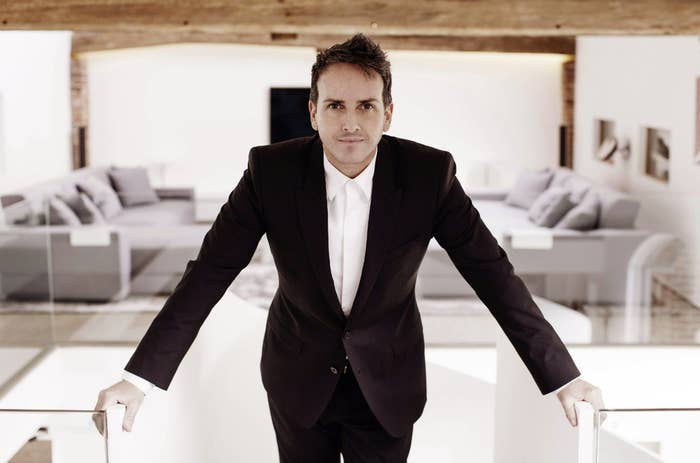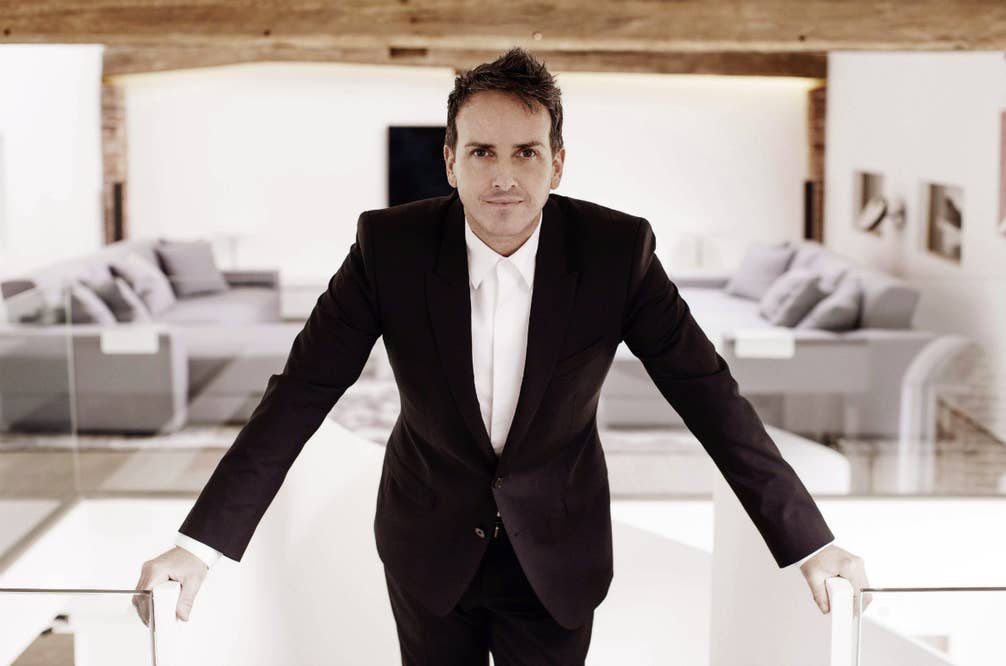
Sacha Lord-Marchionne has been running music events for over twenty years now—building from the ground up with a loyal and hard-working team behind him. Owner of Sankeys during the early '00s and founder of seasonal clubbers' haunt, Warehouse Project, the Manchester native has made monumental moves within his hometown. As festival season approaches, Manny beckons another household event as Parklife opens its gates for the sixth year running. Complex put in a call to Sacha to find out how he's tackling the issue of clubs and drugs, the growth of WHP and Parklife, and why he felt the need to ban man bags and shuffling.
Over the past two decades, you've managed to re-ignite the clubbing scene in Manchester with the introduction of Warehouse Project and Parklife Festival. Can you give us a brief breakdown of your background and why you chose to keep things based in the city?
I'm from Manchester and so is Sam Kandel, my business partner. We grew up here and both experienced the explosion of clubbing in Manchester—especially when The Hacienda peaked in 1988. I started promoting in '94, running student nights, and did that for six years before I started off at The Hacienda. I then moved to a place called Paradise Factory before reopening a nightclub called Sankey Soaps in 2000. And that's where I met Sam; we worked alongside each other there and had a great time but we became quite bored of the same four walls week in, week out. The pressure of running a nightclub every single week saps the creativity. So in 2003, whilst we still actually owned Sankeys, we held Run which was a warehouse party just around the corner for 10,000 people and that was really exciting. I think that planted the seed for WHP, which we created in 2006 when I sold Sankeys and Sam and I jetted off on our adventure.
WHP is known for using disused spaces. Alongside the boredom of running the same club, was the decision also a way to avoid the club closures and relinquish control? It seems like a lot of work every time you want to put on an event.
It is a lot of work, but it's also very rewarding and I think the customers get it. They're not coming to a purpose-built venue, they're coming to something that's very temporary; they're walking into what's essentially a car park but it was actually the largest air raid shelter in Manchester during WWII. For this generation, it's the nearest they're going to come to the illegal warehouse parties that happened in the late '80s and early '90s, in places like Blackburn. Just touching on the closures that you were talking about, we're really lucky in Manchester because the council, MPs and the License authorities really support the music industry. I know Islington [council] tried to close one of the best clubs in the country and they didn't succeed, but it's just such a shame that other cities see the nightlife economy as a ball ache. Especially when you look at something like Parklife that sees 80,000 people over the weekend bring £5 million into the local economy. When I went to the council in 2006 and told them that I wanted to run 12 weeks of events in a warehouse, right in the centre of the city, next to Strangeways Prison, most people would have said that I was mental. But they actually allowed us to have over 100,000 people attend over 12 weeks.
THAT STUPID FUCKING SHUFFLE DANCE—IT REALLY WOUND ME UP. I'D NEVER SEEN ANYTHING AS RIDICULOUS IN MY ENTIRE LIFE.
What do you think are the key strengths that have allowed you to take club nights and music events to this level?
There are three of us involved in WHP: myself, Sam, and Rich. Sam and Rich look after all the bookings and when you look at the bookings in 2006, compared to now, they've clearly very cleverly evolved. For example, last season was the first time we worked quite heavy on grime and they were the hottest shows. We did the Tropical show and tickets were exchanging outside of the venue—which I hate by the way—for £120 when they were originally £25, and I think that speaks volumes. So that's Sam and Rich's strength and I think my strength is always the licensing side and the authorities. You're going to ask me about man bags now, aren't you? [Laughs]
Yeah, I don't get them.
I've made a rod for my own back with the whole man bag thing. I noticed about three years ago, when we were at Victoria Warehouse, there was a certain genre of music that was attracting a crowd that I didn't particularly like because they were quite moody. I was looking at this crowd and thinking that they weren't there to come and have a good time. They were there to come in and do that stupid fucking shuffle dance—it really wound me up. I'd never seen anything as ridiculous in my entire life. It became a little bit intimidating because there were in these big groups of lads and I looked at them and thought, "What have they got in common?" They all wore man bags, and they tended to be Gucci man bags. The worst ones, the ringleaders, they wore Gucci caps, Gucci sunglasses, Gucci man bags, Gucci trainers—the whole lot!—and it just looked stupid. So I decided we were going to ban man bags, and in the space of four weeks, we got rid of those bad elements. But because of that, I've had to stick to the ban now and I do actually see the odd customer that comes out who's obviously just after having a really good night out. I don't know what it is. [Long pause]. You obviously know the crowd that I'm talking about...
The generation of ravers that moved away from grime to house when it got stale a few years back?
Yeah, it just didn't feel right. Even now when I go into Manchester and I'm walking around and I see a man bag, there's an instant dislike. It's like a phobia almost, but I'll get over it.
What mistakes have you made that you've learned from, in particular?
The biggest mistake I made was the very first night I did at The Hacienda on the 4th of July, 1994. I put a student night on a Monday and it wasn't until I walked into the club that I actually realised it was outside of term time. So that was a bit of a fuck up. I actually broke even on it, but I worked my balls off to get it.
last season was the first time we worked quite heavy on grime and they were the hottest shows.
How did you go about introducing the drug safety test at WHP? A lot of people go a different route and try to wash their hands of the issue, but you seem to take ahold of it and admit that this happens. So what can we do to try and make it safe?
Well, this is something I've been very vocal about. If the government can't prevent drugs coming into this country, or if the authorities can't prevent drugs getting into a prison, how on earth are club or event promoters supposed to stop drugs getting into an event? You can't. You just simply can't. So what you have to do is understand the potentials of what could happen and get everything in place to mitigate it. In the summer of 2013, we actually tested the drug confiscation. A 13-year-old can go on the Internet and buy a load of legal highs for £5 and you haven't got a clue what’s in that. And that's my biggest concern: the legal highs as opposed to the illegal highs.
What is your personal highlight of running events over the years?
We had a band on in 2012 that, at the time, were little known to this generation—and that was Chic. Nile Rodgers blew me away. I'm a massive Smiths fan and for the last track, which was "Le Freak", Johnny Mar came on and that was something I'll never forget about WHP. A highlight from Parklife has to be sitting in a Portacabin for 20 minutes, just Grace Jones and me having a natter. It was weird but she was actually a lovely person. She's nearly 70 now and she came on-stage with her boobs out and did the hula-hoop whilst singing. And on top of that, she had the flu.
For information on upcoming Warehouse Project, Parklife and WILD LIFE events, head here, here and here.

